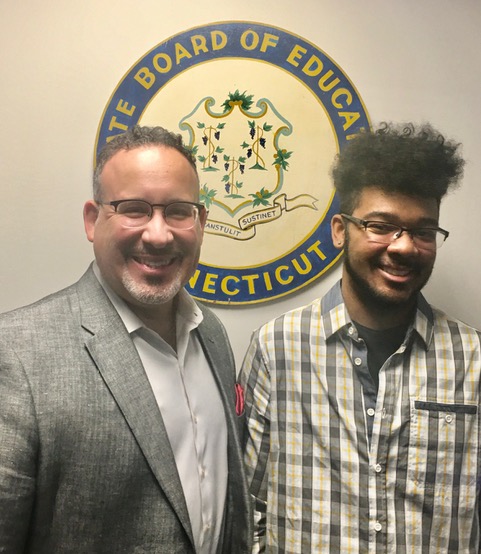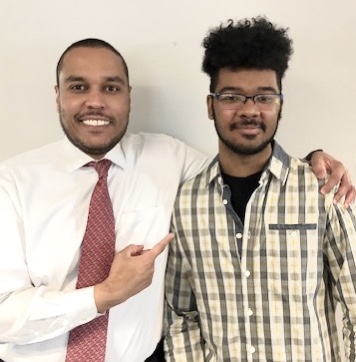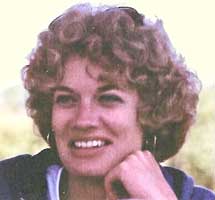Editor’s Note: The Washington Post has published an excellent story about how students of color benefit from having teachers of color. The story features individual students and the teachers who have made a difference in their lives. It also highlights research into the impact of teachers of color.
For example, researchers have found significant positive results when black and Latino students have teachers who match their race or ethnicity: Better attendance, fewer suspensions, more positive attitudes, and higher test scores, graduation rates and college attendance. Teachers of color also have higher expectations for students of color, which may fuel the other gains.
Studies have concluded that having a same-race teacher makes black and Latino students more likely to graduate from high school and enroll in college. Excerpts from the story follow.
By Laura Meckler and Kate Rabinowitz, Washington Post, Dec 27, 2019
SANTA ROSA, Calif. — Ricardo Alcalá’s parents, born in Mexico, carried less than a second-grade education when they came to California to work the fields. His older siblings dropped out of high school. One was sentenced to prison for life and killed behind bars. Ricardo was 13 then, living in poverty.
But
when he was 14, something changed. A Latina teacher told him he was too smart
for pre-algebra and should move up.
“For
some reason, that simple act and belief changed my entire perception of
schooling, and life really,” he said. “She was the first person who saw
something good in me.”
Now, Alcalá is a high school Spanish teacher, looking for the good in his students, most from Latino and poor families like his. He nudges boys drawn to gangs toward the wrestling team instead, and serves Mexican hot chocolate on a Monday afternoon, hoping that small treat will dissuade students from skipping class.
Just Two Latino Teachers
Not
many teachers at Elsie Allen High School can connect with students in the same
way. While 80 percent of students are Latino, just two of 56 teachers are — 3.5
percent.
Nationally,
a Washington Post analysis of school district data from 46 states and the
District of Columbia finds that only one-tenth of 1 percent of Latino students
attend a school system where the portion of Latino teachers equals or exceeds
the percentage of Latino students.
It’s only marginally better for black students: 7 percent were enrolled in a district where the share of black teachers matches or exceeds that for students. Among Asian students, it was 4.5 percent.
Over time, the ranks of teachers of color have grown. In 1988, 87 percent of public school teachers were white. By 2016, 80 percent were, according to federal data.
Racial Gap Between Students And Teachers Has Grown
Nonetheless,
the racial gap between teachers and students has widened as more young people
of color have enrolled each year. In 1994, two-thirds of public school students
were white; by 2016, fewer than half were.
Researchers have found significant positive results when black and Hispanic students have teachers who match their race or ethnicity: better attendance, fewer suspensions, more positive attitudes, and higher test scores, graduation rates and college attendance. Teachers of color also have higher expectations for students of color, which may fuel the other gains.
“Representation
absolutely matters and it matters for … almost every educational outcome you
can think of,” said Seth Gershenson, a public policy professor at American
University.
Lack of Cultural Connection
Celio Batres, 17, a senior here in Santa Rosa, whose family emigrated from El Salvador, recalled an assignment to explore different cultures and feeling like he couldn’t connect with his white teacher. “She grew up in a middle-class family, basically living the American Dream, and that’s completely different from my family and the way we were brought up,” he said.
He said it was different with the one Latino teacher he had. Tomas Salinas talked about his own home growing up, the aroma of food wafting from the kitchen where his mom was cooking. “My house, it’s the same way,” Batres said.
Father Figure
Salinas, whose parents are Mexican, remembers being on the other side. A Latina teacher hung Mexican and American flags in his fourth-grade classroom, not far from where he teaches today. “That just spoke to me as a kid,” he said. Now, as an English teacher, he incorporates Latino authors into his course.
Motivating Students
At
Elsie Allen High, Alcalá teaches Spanish, coaches the wrestling team and, when
he thinks it might motivate a student, tells the story of his brother’s death,
and how it motivated him to get serious about school. He tells them poverty is
no excuse for failure. He tells them selling drugs is what landed his brother
in prison. He’ll sometimes visit his students’ parents at home.
“I have
no fear to go to someone’s house and talk to them in their native language,” he
said.
Higher Graduation Rates
Studies find that having a same-race teacher makes black and Hispanic students more likely to graduate from high school and enroll in college and can even affect a choice of major. One study looked at black students who had at least one black and one white teacher in high school and found the black teachers more likely to expect black students would finish college. Another found that black students were more likely to be referred to gifted and talented programs when they had black teachers.
“I’m
doing student teaching two blocks away from my home,” said Kimberly
Leal-Juarez, 28, who is working toward her teaching certification at the Los
Angeles university.
She said she never had a Latino teacher until high school and rarely felt supported. She recalls one of her teachers calling her college application essay “melodramatic,” a shot that stung her enough to abandon the idea of applying to college for several years. She said she had written about domestic violence in her home. “I didn’t know how to fix my personal statement. It was real for me.”
Relatable Teacher
Talking with students at San Gabriel High School in the Alhambra district, one name kept popping up: English teacher Virginia Parra. Asked if there was a teacher they could relate to, one Latino student after another mentioned her.
Growing
up, Parra said, her father was always working and rarely set foot in school.
Her mom was embarrassed that her English wasn’t good enough and shied away from
teachers. Parra says she got lucky that a teacher noticed her and pushed her
toward advanced classes and college. Now, she is doing the same, moving Latino
kids into and through her AP English Language course.
“Some
of the students are struggling, or they never saw themselves capable of being
in an AP class. And in the beginning we talk about why they’re here and their
purpose and telling them that they’re all valued and they should be here,” she
said.
She seems a little embarrassed talking about her impact. But her wall is full of notes from students, and another mound of cards is put away, along with a stack of yearbooks whose pages are filled with student messages.
Helped By Getting a Push
Ashley
Macias, 15, who came to California from Mexico when she was 3, was already
feeling insecure when she learned the cross-country team was dominated by Asian
students. She wanted to be part of it, but feared she didn’t fit in. Macias talked
to Parra, and learned she had run cross-country in high school. “And that kind
of pushed me to want to go back because I felt if she did it, you know, it’s
okay if I go, too.”
Parra
also encouraged her to compete in a poetry competition. She performed her poem
called “Assumptions,” eviscerating those who assume she’s a criminal, a “ghetto
girl” or stupid in school. “I have never worked on a field,” her poem says.
“But even if I had to why would that be so bad.”
“I find
myself not being scared to do much anymore,” Macias said. “And I think that’s
because of her.”



